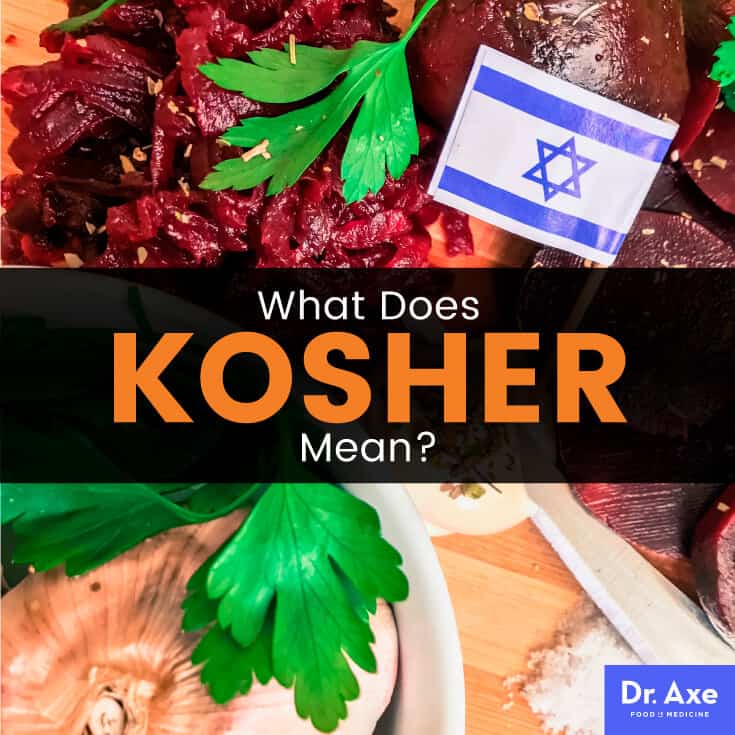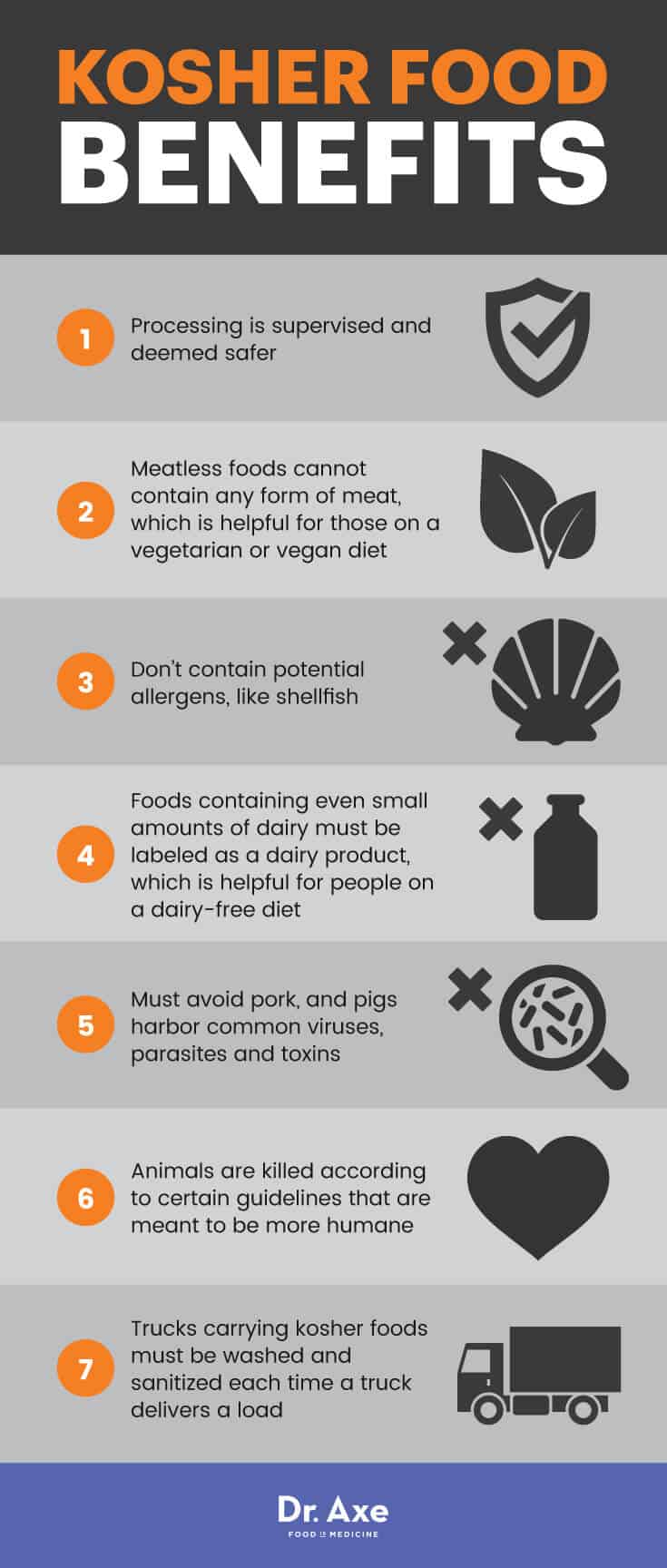This Dr. Axe content is medically reviewed or fact checked to ensure factually accurate information.
With strict editorial sourcing guidelines, we only link to academic research institutions, reputable media sites and, when research is available, medically peer-reviewed studies. Note that the numbers in parentheses (1, 2, etc.) are clickable links to these studies.
The information in our articles is NOT intended to replace a one-on-one relationship with a qualified health care professional and is not intended as medical advice.
This article is based on scientific evidence, written by experts and fact checked by our trained editorial staff. Note that the numbers in parentheses (1, 2, etc.) are clickable links to medically peer-reviewed studies.
Our team includes licensed nutritionists and dietitians, certified health education specialists, as well as certified strength and conditioning specialists, personal trainers and corrective exercise specialists. Our team aims to be not only thorough with its research, but also objective and unbiased.
The information in our articles is NOT intended to replace a one-on-one relationship with a qualified health care professional and is not intended as medical advice.
What Is Kosher Food? Plus Kosher Diet Guidelines
May 8, 2017

If you’re like many Americans today, you’ve wondered about kosher foods. What does kosher mean? You see the labels on packaged foods around the grocery store, but maybe you aren’t exactly sure what a kosher certification entails.
Kosher food is meant to be pure and safe for consumption. As it becomes more difficult to distinguish clean versus tampered foods these days, maybe sticking to a kosher diet can be beneficial?
With the dramatic changes in the food industry over the past 50 years, eating a kosher diet has become more difficult, as about 60 percent of the average American’s daily energy intake comes from ultra-processed foods. Consumers are losing confidence in their food choices, especially as the farming and processing of food have become big business.
It’s no wonder that the kosher food market has been gaining popularity. Americans view kosher foods as trustworthy, which is a far cry from the way they perceive the food industry. With the kosher stamp on a package, it certifies that a food is actually what it claims to be. So what does kosher mean, what makes something a kosher food and how can you follow a kosher diet? Let’s answer those questions.
What Does Kosher Mean?
What does kosher mean? Kosher is a Hebrew word that means “fit” or “proper.” The word kosher is used to describe food and drink that complies with Jewish religious dietary law. Keeping kosher is considered a “mitzvah,” a divine commandment. Jewish people believe that God commanded them to keep kosher, so they are connecting with God by fulfilling his command.
They also believe that it was commanded by God because it will benefit both their bodies and souls to eat in this pure way. So, what does kosher mean for a Jew? It means that following these guidelines is the diet of spiritual nutrition for the Jewish soul, and it’s designed to bring purification and refinement to the Jewish people. (1)
For Jews, eating non-kosher foods diminishes their spiritual sensitivity and reduces their ability to absorb the concepts of Torah and mitzvoth (commandments). The hope is that when kosher observance is strong, so is a Jewish person’s spiritual identity.
For a food to be kosher, the production process must meet kosher requirements and then be approved by a kosher auditor. For a kosher product to be certified, every ingredient, additive and processing aid that’s used in production must also be kosher. No non-kosher foods can be used in the production lines or with the same equipment as kosher foods. (2)
Related: Top 10 Bible Foods that Heal and the Biblical Diet
Foods
There are specific kosher definitions that explain what foods are considered kosher. Here’s a run down of the kosher definition for each food group:
1. Meat and Poultry
Not all animal or bird meat is considered kosher. Animals that are considered kosher include cows, goats and sheep, but pigs — often processed meat — horse, camel and rabbit are not kosher foods. Most poultry, including chicken, turkey, goose and duck, are considered kosher foods.
2. Dairy
It’s required that dairy products come from kosher animals. Because milk in the United States is guaranteed to be from kosher animals by law, some Jewish authorities allow milk products to be considered kosher without the need for full-time kosher supervision. When communities require their milk production to be fully supervised, this is called Cholov Yisroel (meaning “Jewish milk”).
For dairy products to be considered Cholov Yisroel, a Jewish supervisor must be present from the milking to the end of the processing to make sure that only kosher animals are used to produce the milk. Even if non-kosher animals are present when a cow is being milked, the milk cannot be considered Cholov Yisroel.
Cheese, on the other hand, requires full-time kosher supervision because of the presence of rennet. Rennet is a complex of enzymes that is produced in the stomachs of animals. It’s commonly used to separate milk into solid curds for cheesemaking. Because rennet is an animal source, the production of cheese must be supervised in order to be considered kosher. (3)
3. Eggs
Eggs must be from kosher birds (such as chicken, turkey, Cornish hens, ducks and geese), and they can’t have any blood spots, which is considered unclean.

4. Fish
To be considered kosher food, fish must have fins and scales, and they must be removed without tearing the fish’s skin. Shellfish are considered fish that you should never eat. Generally speaking, some common examples of kosher fish include salmon, tuna, sole, halibut, codfish, herrings and plaice. Examples of non-kosher fish include all shellfish, eels, shark, monkfish, huss and catfish. Fish oil and other fish derivatives must also be from kosher fish.
Choosing kosher fish can be confusing because it’s common that fish aren’t labeled properly or labeled as general, common names instead of noting the specific species name. There’s also the issue of cross-contamination when the fish are caught and processed. For these reasons, it’s important to buy kosher fish from a trustworthy source who is knowledgable about kosher requirements.
Kosher Foods List
Meat
- cattle
- sheep
- goats
- deer
Birds
- chicken
- duck
- turkey
- goose
- pigeon
Fish
- anchovies
- bluefish
- flounder
- fluke
- haddock
- halibut
- herring
- mackerel
- red snapper
- salmon
- sardines
- sea bass
- sole
- trout
- tuna
- whitefish
Eggs
- all eggs with no blood spots from kosher birds
Milk and Cheese
- only from kosher animals and made with no non-kosher derivatives or animal products
Fruits and Vegetables
- all fruits and vegetables, but must be examined for insects and cleaned thoroughly
Grains
- all grains are considered kosher, except during Passover
Cooking Oils
- all cooking oils extracted from fruits, seeds, grains and nuts must have a kosher certification label
Processed Foods
- all processed foods, including bread, baked goods, cereal and pasta, must have a kosher certification label
Diet Guidelines
There are three categories of kosher foods: meat, dairy and pareve. Each food group fits into the kosher diet guidelines and requires specific handling and preparing to be considered kosher. (4)
Separation of Meat and Dairy
The Torah says “you may not cook a young animal in the milk of its mother,” declaring one of the main principles of what it means to be kosher. When following a kosher diet, meat and dairy products must be completely separated — this is the principle called kashrut. Meat and dairy products cannot be cooked or consumed together; plus, in a kosher kitchen, there are separate preparation areas, dishes, utensils and cookware for meat and dairy so the two food groups never come together.
Meat
Meat includes any animal and its byproducts, such as bones, broth, soup and gravy. In order to eat meat under kosher guidelines, it must come from a kosher animal and be slaughtered, drained and examined according to kosher requirements. Meat must also be salted to remove the blood.
Slaughter of Animals
There are strict guidelines that must be met in the slaughter of animals in order for meat to be considered kosher. It’s believed that the laws regarding the specific method of slaughter were expressed to Moses on Mount Sinai. The first rule is that the only people who can participate in the slaughter of animals for food must be knowledgeable about the laws and receive written authorization from a rabbinical authority.
The slaughter of animals (called shehitah) must be done quickly, with a smooth cut of a sharp knife that has no dents or imperfections. The cut must be done by severing the trachea and the esophagus, cutting off air to the lungs. There are improper procedures that must be avoided when slaughtering an animal, which include hesitation or delay while drawing the knife, excessive pressure, burrowing the knife during the cut, cutting outside of the specified area, or tearing the area without killing the animal because the blade wasn’t sharp enough.
Once the animal dies, certain forbidden fats and veins must be removed and the meat must soak in a bath in room temperature water for 30 minutes. To draw out the blood, the soaked meat is then placed on special salting tables where it’s salted on both sides for one hour.
If an animal isn’t properly slaughtered or if it dies from other causes, such as disease, it isn’t fit to eat and can’t be considered kosher. If the slaughtering procedure fails to abide by these guidelines, the meat will be rejected by the Jewish authorities. (5, 6)
Dairy
Any food that contains milk is considered dairy, including milk, yogurt, butter and all cheese. Dairy products must come from a kosher animal, processed with kosher equipment and cannot contain any meat derivatives.
Pareve
Pareve refers to foods that aren’t composed of meat or dairy so they can be eaten with either food group under the kosher diet guidelines. Foods that are considered pareve include eggs (without blood spots), fish, fruit, vegetables and grains in their natural, unprocessed state. Vegetables and fruits must be carefully inspected for insects and cleaned properly, as insects are strictly non-kosher. Pareve foods should not be processed with dairy or meat foods, and any packaged or processed pareve foods should have a reliable kosher certification.
Wine and Grapes
The processing and manufacturing of fresh or dried grape products, such as wine and juice, must be supervised and handled exclusively by Jews for them to be considered kosher. Grape products should have a kosher certificate.
Bread
Bread and bread products must have two levels of kosher certification. To be considered kosher, bread should be baked by a Jewish person in a kosher home or kosher bakery, or baked by a non-Jewish professional baker with the supervision of Jewish authorities. This is important because many bakeries in the United States use dairy products in their breads. Some bakeries also grease their pans with animal fats, which can’t be done for the bread to be considered kosher.
In addition to this, under product regulations, additives like whey do not have to be declared on the packaging when they’re only used in small amounts, so although the bread is technically non-kosher, the ingredients listed on the product make you believe otherwise. (7)
Fruits and Vegetables
All fresh, whole fruits and vegetables, and even herbs, are considered kosher, as long as they have been carefully examined for insects. This is especially important for vegetables that are hard to examine for insects, like cauliflower and broccoli; in these cases, buying fresh florets can be helpful.
Canned, jarred, packaged or freeze-dried fruits and vegetables should be labeled kosher or indicate that they aren’t made with artificial flavors or colors. Frozen fruits and vegetables are generally considered kosher, but vegetables that are more difficult to check for insects (like broccoli, Brussels sprouts, spinach, potatoes, mustard greens and asparagus) should be thawed and checked further.
Passover
For Passover, Jewish people avoid eating chametz, or food that contains any amount of wheat, barley, rye, oats and spelt that has leavened or fermented. Many Jewish communities also refrain from what’s called kitniyot, which includes legumes or pulses like corn, rapeseed, peanuts, beans, rice and soy. For Passover, Jews must also be sure to use separate dishes, utensils or cookware than what’s normally used for grains.

How to Find Kosher Foods
As kosher foods become more popular, they’re easier to find in your neighborhood. Some communities have stores that sell kosher products exclusively. This ensures that all foods are labeled correctly and safe to eat when following a kosher diet.
So how do you know what is kosher? If you don’t have a kosher store near you, look for packaged foods that have a seal of rabbinic supervision. This ensures that the processing of the food has been overseen by a Jewish supervisor to be sure that all kosher guidelines have been followed. There are a number of labels that indicate that a product is certified kosher. Some of the most common labels are a U with a circle around it and a K with a circle around it. The label depends on the kosher agencies, which vary from state to state.
For people who are strictly kosher, the label that’s a K with no circle around it means that an individual rabbi grants the food kosher, not an organization. Foods with a K may be fine according to some Orthodox standards, but for other communities it’s important to have the kosher certification from a specialized organization.
Recipes
There are so many kosher-friendly recipes to choose from. Kosher recipes must include only animal meat that’s considered kosher and diary that comes from kosher animals. But, the most important principle of all, the two food groups cannot be combined.
My Minestrone Soup Recipe contains neither meat or dairy, so it would be considered pareve and completely kosher.
Any Beef Stew Recipe that contains only kosher beef and vegetables is considered kosher-friendly. Make sure that the broth is also from a kosher animal and the vegetables and herbs are washed thoroughly.
Kosher fish are considered pareve, so they can be mixed with either meat or dairy. Salmon, a kosher-friendly fish, is mixed with kale and topped with goat’s milk yogurt in this Salmon Kale Recipe.
Benefits
According to research published in Packaged Facts, a significant percentage of kosher consumers in America are not Jewish, but they buy kosher food because they believe it’s healthier and safer. It’s estimated that sales of kosher food swelled from nearly $150 billion in 2003 to more than $200 billion in 2008.
The numbers continue to climb, although the Jewish population in the U.S. is less than 2 percent. This is due not only to the rise in certified products on the market, but also the growing number of consumers who deliberately choose kosher food. (9)
Researchers suggest that people choose kosher food because of the following potential benefits:
- Food processing is supervised and deemed safer.
- Meatless foods cannot contain any form of meat, which is helpful for those on a vegetarian or vegan diet.
- Foods will not contain potential allergens, like shellfish.
- Foods containing even small amounts of dairy must be labeled as dairy products, which is helpful for people on a dairy-free diet.
- People on a kosher diet must avoid pork because, as it says in the Old Testament, the pig is a scavenger and not meant for human consumption. Plus, pigs harbor common viruses, parasites and toxins.
- Animals are killed according to certain guidelines that are meant to be more humane.
- Trucks carrying kosher food must be washed and sanitized each time a truck delivers a load.
Related: Daniel Fast: Benefits for Your Spiritual, Emotional and Physical Health
Final Thoughts
- What does kosher mean? Kosher means “fit” or “proper.” The word kosher is used to describe food and drink that complies with Jewish religious dietary law.
- For Jewish people, eating non-kosher foods diminishes their spiritual sensitivity and reduces their ability to absorb the concepts of Torah and mitzvoth (commandments).
- For a food to be kosher, the production process must meet kosher requirements and then be approved by a kosher auditor. For a kosher product to be certified, every ingredient, additive and processing aid that’s used in production must also be kosher.
- There are specific kosher definitions that explain what foods are considered kosher. The two most important food categories are meat and dairy, which can never be mixed and eaten or processed together. It’s also important that people on a kosher diet only eat kosher animal meat and fish.
- How do you know what is kosher? Any packaged or processed foods must be labeled with a kosher certification, and fruits and vegetables must be washed thoroughly to be sure there are no insects present.
- More and more Americans are eating a kosher diet because they feel it’s a safer, healthier standard than relying on the food industry.



